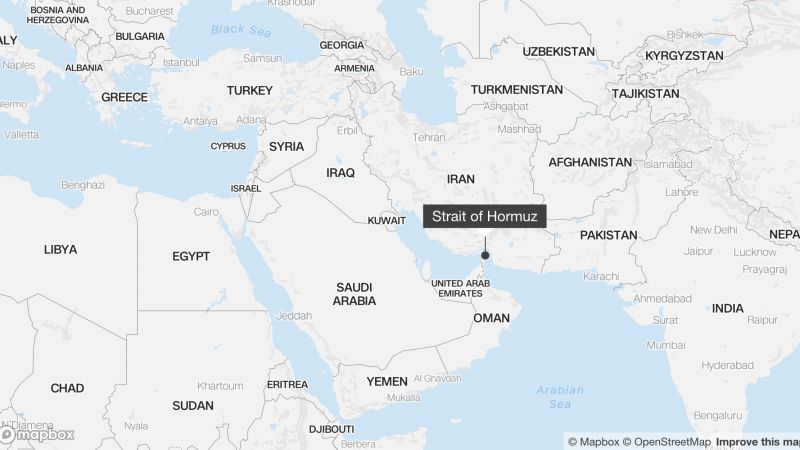The conflict in the Middle East has led to an increase in global oil prices, with the potential for further escalation if the vital Strait of Hormuz is affected. This narrow waterway is crucial for the transit of oil, with about one-fifth of the world’s global oil trade passing through it each day. Additionally, it accounts for a significant portion of the world’s daily trade in liquefied natural gas.
The risk of disruption to the flow of oil through the strait has increased as tensions escalate in the region. Iran recently launched missiles at Israel in retaliation for the killing of the leader of Hezbollah, an Iran-backed militant group. Israel has indicated plans to strike back at Iran, further heightening the situation. The potential consequences of any conflict involving the Strait of Hormuz could lead to a significant rise in oil prices.
The possibility of oil trade through the strait being disrupted could cause prices to soar above $100 a barrel, according to research firm ClearView Energy Partners. Despite the current relatively low chances of Iran disrupting the strait, the unpredictability of Iranian decision-making adds to the uncertainty. If Israel were to retaliate with a substantial strike on Iranian nuclear sites, there is a risk that Iran could attempt to close the strait, further impacting global oil prices.
Historically, in 1973, oil prices soared following an embargo imposed by key Arab oil producers in response to support for Israel in the Arab-Israeli war. This led to fuel shortages in the US and long lines at gas stations. While oil prices have risen since Israel began targeting Hezbollah in late September, the impact has been somewhat limited due to concerns about weak demand in China and a global oil supply glut.
The current price of Brent crude, the global benchmark, has risen slightly to $77 a barrel, while West Texas Intermediate, the US benchmark, has increased to nearly $74 a barrel. However, the potential for further escalation in the conflict in the Middle East, particularly involving the Strait of Hormuz, poses a significant risk to oil prices. Increased tensions and uncertainty in the region could lead to a repeat of the oil shock seen in the 1970s, with potentially severe consequences for the global oil market.













